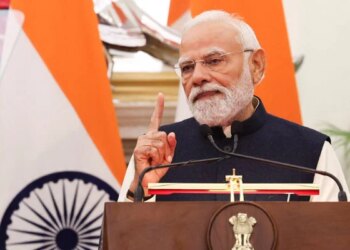Select Language:
Overview of the 2025 World Press Freedom Index
The 2025 World Press Freedom Index, released by Reporters Without Borders (RSF), reveals alarming trends regarding media freedom globally. The report indicates a significant deterioration in economic indicators related to press freedom, showcasing a troubling decline in financial security for media outlets.
Economic Indicators and Their Impact
This year, the economic indicator for press freedom dropped to an unprecedented low of 44.1 points, marking a decline of more than 2 percentage points in just one year. Scores below 55 point to a critical situation, suggesting that economic pressures are increasingly compromising media freedoms.
Factors Undermining Financial Security
The report emphasizes several factors contributing to this decline, including:
- Ownership Concentration: A few entities control much of the media landscape, reducing diversity and independence.
- Advertiser and Financial Pressure: Media outlets face pressure from advertisers and financial sponsors, which can lead to self-censorship.
- Lack of Transparent Public Aid: Insufficient and opaque public support mechanisms exacerbate financial instability for news organizations.
Global Trends in Press Freedom
The report categorizes the state of press freedom across the globe, revealing widespread challenges:
- 42 Countries: Identified in the "very serious" situation category, indicating extreme suppression of press freedoms.
- 48 Countries: Labeled as “difficult,” showing significant obstacles to free expression.
- 42 Countries: Falling into “satisfactory” or “good” categories, maintaining a healthier environment for media operations.
Top Performers and Worst Offenders
Norway once again tops the list, maintaining its position for the ninth consecutive year. Estonia and the Netherlands follow closely in the rankings. On the other end of the spectrum:
- China occupies position 178,
- North Korea ranks 179,
- Eritrea is at the bottom, holding 180.
The Situation in the United States
The United States has seen a decline, dropping to 57th place in the index. This reflects a growing distrust in the media, fueled partly by antagonism from political leaders. There have also been incidents where local law enforcement has attempted to intimidate the press, notably through raids on newsrooms, which adds to the atmosphere of uncertainty for journalists.
Methodology of the Index
Since its inception in 2002, RSF’s methodology has evolved. The latest iteration, refined in 2021 in collaboration with media and academic experts, analyzes 180 countries and territories based on five critical indicators:
- Political context
- Legal framework
- Economic context
- Sociocultural context
- Security considerations
This comprehensive approach allows for a nuanced understanding of the various elements impacting press freedom worldwide, emphasizing the interconnectedness of economic stability and journalistic integrity.
As we continue to monitor these shifts, the findings serve as a wake-up call about the fragile state of press freedom and the essential role of supporting independent journalism in fostering democracy and accountability across the globe.







